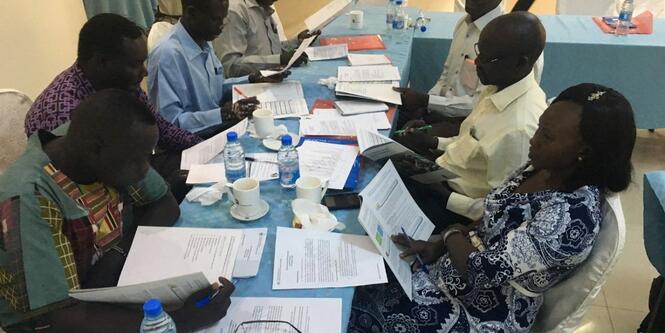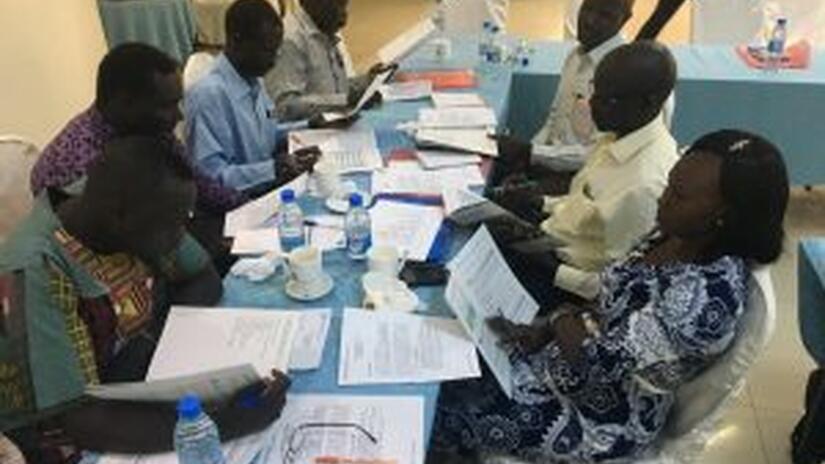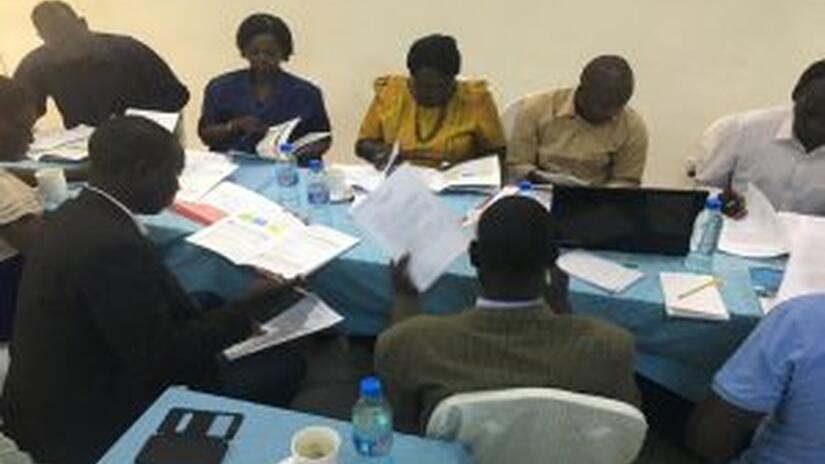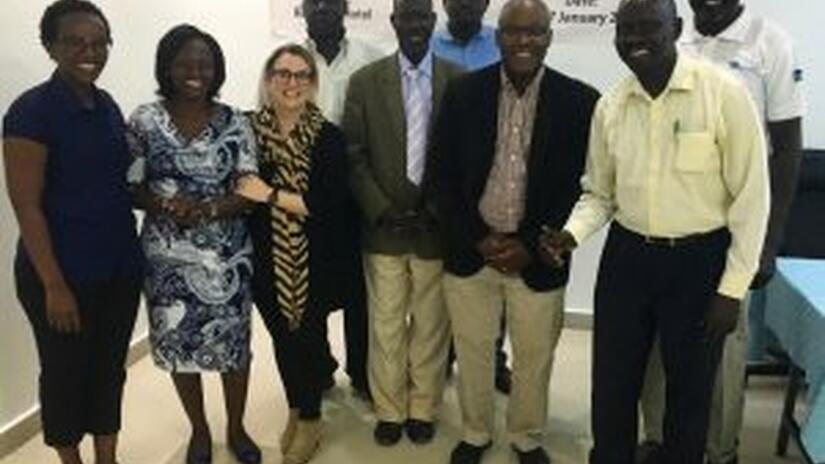
With over 100,000 people facing starvation, over 2 million South Sudanese refugees who have fled to neighbouring countries and the unfortunate collapse of the much-anticipated Christmas Eve ceasefire, the situation in the country continues to become more complex. It is now more than ever that South Sudan needs a strong foundational framework to guide key humanitarian actors and assisting international agencies.
Through its dedicated volunteers across the country, the South Sudan Red Cross Society (SSRCS) remains at the forefront of disasters, tirelessly working to ensure that much-needed aid is delivered to those in need. The SSRCS recognised early on the need to have a regulatory framework in place to support its activities and enhance its auxiliary role with the public authorities. Since 2012, the SSRCS has been championing through various platforms the need for a legislative framework to act as a guide in all facets of disaster management. Working closely with the Ministry of Humanitarian Affairs and Disaster Management (MHADM), SSRCS has worked to increase awareness on the importance of having the right laws and policies in place.
“We must take measures to make sure that our nation is well prepared to mitigate the impacts of disasters when they happen,” stated the Honourable Mr. Gatwech Peter Kulang, Undersecretary at the Ministry of Humanitarian Affairs and Disaster Management, during his opening remarks at the workshop. “An active step is making sure we have the proper legislative frameworks in place to deal with this.”
Having co-organised a workshop in March 2017 to train the relevant national ministries on International Disaster Response Law (IDRL) and the role of law in disaster risk reduction (DRR), a follow-up event was organised in January 2018 by the MHADM, SSRCS and IFRC, to target the authorities and key actors at the state level. Over two days, on the 16th and 17th of January 2018, officials from Jubek State and representatives from national line ministries met in Juba to introduce key disaster law themes as relevant for South Sudan. The workshop provided a platform for collaboration and planning the final steps for the timely finalisation and adoption of the National Disaster Risk Management (NDRM) policy. “[We] need a policy to guide the decision-making process so that there is consistency in the decisions being made, especially when it comes to disasters,” remarked Ms. Savia Aya Sylvester, Director General at the Ministry of Housing, Land and Urban Development.
The importance of developing a new law in addition to a national DRM policy was also emphasized during the discussions. “To succeed we need to have a holistic and collaborative approach to ensure there is a policy to guide disaster management – and finally develop a law as well,” stated Ms. Betty Kitta Scopas Dumo, Director General, Directorate of Early Warning Systems at the MHADM.
Through their active engagement, participants demonstrated a firm appreciation of the need for a legal and policy framework to facilitate the delivery of humanitarian assistance in the country. Taking note of the specific challenges faced at the state level, participants worked with the MHADM officials to formulate a work plan consisting of short term and long-term goals to facilitate the finalisation and implementation of the NDRM policy. The need for continued civic engagement with communities on disaster management and disaster risk reduction practices, as well as finalisation of the NDRM policy draft, remained a high priority among the short-term goals. On the other hand, collaborative engagement with other relevant government agencies and academic institutions was highlighted as being crucial long-term goals to ensuring that the policy is effectively implemented once it is in place.
Emphasizing the importance of collaboration and working together, Dr. Michael Adekunle Charles, IFRC Country Representative for South Sudan, stressed that “Being able to formulate a concrete plan out of this workshop is quite critical. Disaster Law belongs to all of us, [and] if we do not work together it will not succeed.”
The officials from Jubek State also reiterated their continued support to this process and promised to champion the implementation of the workshop outcomes as well as the eventual implementation of the policy at the state level. The MHDAM was happy to note that the plan generated by the participants complemented its existing strategy for 2018, which will make implementation much easier. The IFRC on its part reaffirmed its commitment to continue supporting South Sudan in the development of a solid legal and policy framework for the management of disasters, and building community resilience. “We will walk with you if you are willing to walk” exclaimed Dr. Michael Adekunle Charles, “and we will run with you if you are willing to run!”


